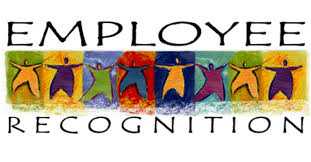JAN 2025, Vol 22, Issue 1
Overview
- Why It Pays to Praise: 20 Ways to Say ‘Good Job’
- Reminder Delaware Minimum Wage Increases
- Reminder to Update Your AAPs
- Employers Should Prepare for Immigration Raids
Why It Pays to Praise: 20 Ways to Say ‘Good Job’
by Rachel Mucha
You probably realize how powerful your words can be when you praise someone for a job well done. By recognizing an employee at just the right time with just the right words, you can impact that individual – and your company – in a highly valuable way, say researchers.
Since compliments are free to give out and do so much for morale, it pays to show your appreciation to your team. According to employee engagement firm TINYpulse, employees who receive continuous feedback:
- Believe their company is 11% better at taking action on their feedback
- Say they feel 11% more valued at work
- Feel their work environment is 12% better, and
- Think they’re 9% more likely to refer someone to work for their company
Top 20 Compliments for Employee Praise
Recognizing your employees for good work, whether said in person or written as comments on a performance review, starts with having the right words to express your words of appreciation.
TINYpulse offers its top compliments that will express your gratitude, appreciation and encouragement:
- “Having you on the team makes a huge difference.”
- “You always find a way to get it done – and done well.”
- “It’s really admirable how you always see projects through from conception to completion.”
- “Thank you for always speaking up in team meetings and providing a unique perspective.”
- “Your efforts at strengthening our culture have not gone unnoticed.”
- “Fantastic work!”
- “Even when the going gets tough, you continue to have the best attitude.”
- “It’s amazing how you always help new employees get up to speed.”
- “Wow! Just when I thought your work couldn’t get any better!”
- “Your work ethic speaks for itself.”
- “Thanks for always being willing to lend a hand.”
- “The pride you take in your work is truly inspiring.”
- “You’re so great to work with.”
- “I am continually impressed by the results you produce!”
- “Thank you for being so flexible.”
- “It’s incredible how thorough your work is.”
- “Your work ethic is out of this world!”
- “You have an extremely healthy perspective.”
- “You’re one of the most reliable employees I’ve ever had.”
- “Thank you for setting a great example for your co-workers.”
- - - -
Reminder Delaware Minimum Wage Increases
The minimum wage will increase from $13.25 to $15.00 per hour in Delaware effective January 1, 2025. The minimum cash wage for tipped employees will be $2.23 per hour.
- - - -
Reminder to Update Your AAPs
Many Affirmative Action Plans (AAPs) expire on December 31, 2024. Under federal law, government contractors and subcontractors with 50 or more employees who have entered into at least one contract of $50,000 or more with the federal government must prepare and maintain a written affirmative action program. AAPs must be developed within 120 days from the commencement of the contract, updated annually, and submitted to DOL during the first quarter of 2025.
- - - -
Employers Should Prepare for Immigration Raids
By Robert C. Divine
It’s no secret that President-elect Donald Trump intends to carry out what he has called the largest mass deportation in U.S. history shortly after taking office.
U.S. employers—particularly those in the manufacturing, food processing, agricultural, construction, and hospitality industries with a relatively unskilled workforce—should immediately prepare for ramped-up government immigration enforcement in the workplace. Employers should get ready to endure a painful process, a sudden loss of workers, and administrative and criminal penalties.
Many employers with a substantial nonprofessional workforce have accumulated workers who may be unauthorized to be in the U.S., whether they entered the country undocumented or overstayed. Employers have been required since 1986 to check the documents of new hires to confirm their identity and work authorization in completing Form I-9, but those documents are easily faked. A rising number of employers have opted or been required to use the government’s electronic E-Verify system, which performs real-time validation against governmental systems. However, readily available counterfeit documents embodying the stolen identities of real citizens or permanent residents will validate in E-Verify.
Few employers have knowingly brought in illegal workers, but many may have overlooked indications that something is wrong: Social Security or tax notifications of mismatches in payroll-related filings, health insurer notifications of multiple people using the same identity, calls from identity theft victims complaining about the misuse, or a pattern of workers presenting state identity cards from the same far-off state. Over time, lower- and mid-level managers may have learned that key workers within their organizations are, in fact, unauthorized or that key referrers are using questionable channels for recruiting.
But even perfectly innocent employers face the risk of a sudden loss of workers following a government raid.
I-9 Audits: The ‘Silent Raid’
The U.S. Department of Homeland Security (DHS) has the authority to appear at a worksite with a notice of inspection and/or subpoena and demand that the employer produce the following within three days: historical lists of workers with dates of hire and termination, payroll and tax records, company ownership information, staffing vendor information, all I-9 forms required to be on file, and any copies of identity and authorization documents presented by employees. Immigration and Customs Enforcement (ICE) will have an expanding national team to inspect these documents.
ICE sanctions are one problem that may arise from an audit, and these sanctions may be imposed for having incorrectly completed forms, for missing forms, and even for knowingly hiring unauthorized workers. Sanctions can range from $300 to $30,000 per worker, plus debarment from federal contracts, and are often disputed. Employers get 10 days to correct technical errors, but ICE takes an expansive view of what counts as substantive errors that can’t be corrected to avoid penalties. ICE can fine employers for failure to comply with extremely technical requirements for electronic storage of completed forms.
Another problem that can result from an audit is ICE issuing a “Notice of Suspect Documents” about workers ICE believes are unauthorized based on its own database checks, even if the I-9 was completed correctly. The employer must either contest the finding as to particular workers or terminate them, and ICE normally leaves little time for this critical resolution.
Unfortunately, ICE is rarely wrong about suspect documents, and even confronting the worker about the ICE finding often results in the worker failing to show up for work again. Thus, ICE’s “silent raid” on a workforce is accomplished, hampering the employer’s ability to meet production.
Raid with Force
Sometimes, the DHS independently finds evidence of the large-scale employment of unauthorized workers and investigates further, even planting undercover agents within the workforce. Then, suddenly and without warning, the DHS shows up in force with dozens of armed agents, search and seizure warrants, and buses, blocking all gates. Rather than request documents, the DHS will seize them—including computers and phones—and will arrest unauthorized workers and take them away for deportation or even prosecution.
The sudden loss of workers, files, and technology can absolutely undo a business. Sometimes, the government prosecutes employer owners and managers on charges including harboring and trafficking unauthorized workers, mail and wire fraud, document fraud, and tax evasion. Criminal charges for harboring aliens (or other, related criminal charges such as committing fraud on immigration documents) can potentially run into the hundreds of thousands of dollars. If an individual is convicted of such offenses, it can result in imprisonment.
Preparation for Raids
Employers should consider taking the following actions to prepare for silent or loud workforce raids:
- Make sure I-9 verification, storage, and destruction are being handled meticulously at all sites.
- Internally audit I-9s to find and fix patterns of errors.
- Enroll in E-Verify.
- Pay workers and submit tax withholding payments properly.
- Evaluate recruiting patterns to detect systematic improprieties.
- Prepare an immigration component to the employer’s legal compliance policy.
- Identify coordinators for response to raids and game out scenarios with counsel experienced with raids and criminal processes.
- - - -
Contact HR Strategies at 302.376.8595 or info@hrstrategies.org if you would like support or would like to learn more about the items in this newsletter. Please contact us if you would like to be added to our Monthly Strategies mailing list or if you would like for us to add someone to our mailing list.



